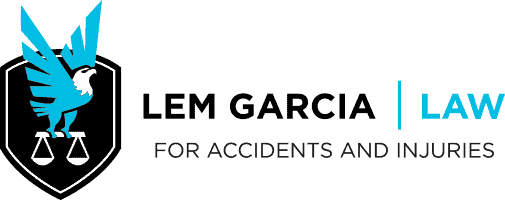How to handle law enforcement’s abuse of power in southern california
In our great state, there are so many law enforcement officials who are respectful, ethical, and dedicated. They are able to keep their cool in stressful and dangerous situations and work to preserve the freedom and safety of California’s citizens, despite the risks to their own well-being. With this responsibility comes a good deal of power from the government and a significant amount of influence on the community as a whole, but especially its citizens. Unfortunately, there are those who abuse this power, leaving a trail of damage and pain in their wake.
Keep reading to discover some of the ways that some police officers take advantage of their authority and the steps that you can take if you have been a victim of this terrible injustice.
Ways That Police Abuse Their Power

A majority of law enforcement officers take their vow and responsibilities seriously, and they strive to serve their community in a meaningful way. Sadly, there are some cops who selfishly take the law into their own hands and, subsequently, abuse their authority.
Police officers can abuse their power in a number of ways. Though the term “abuse of power” can encompass a wide range of situations and injustices, there is a common theme. When cops abuse their authority, they are taking advantage of their role and the citizens they vowed to protect and serve. “Police brutality” is another common term that refers to a police officer’s use of force that exceeds what is necessary or reasonable to carry out their lawful duties. Here are a few examples of ways that police officers can abuse their authority:
- Participating in theft or fraud.
- Violating a citizen’s civil rights.
- Blackmailing citizens in exchange for leniency.
- Assaulting a citizen.
- Unlawful murder.
- Searching or arresting someone without a warrant.
- Intrusive and/or unnecessary strip searches.
- Placing someone under false arrest.
- Racial profiling.
- Using excessive physical force.
How the Government Qualifies and Punishes Police Misconduct
When a police officer abuses their authority, they can be held liable for their actions. Here are some of the laws that the Department of Justice enforces:
Federal Criminal Enforcement
This statute states that it is considered a crime for local, state, or federal officials to intentionally deprive or plan to deprive another person of their constitutional rights. These laws cover different types of police abuse of power, including willingly fabricating evidence that results in another person losing their liberty, purposefully arresting someone wrongfully, sexually assaulting someone, and using excessive physical force.
If a law enforcement official violates these laws, they can face a fine and/or imprisonment.
Police Misconduct Provision
This law explicitly prohibits local or state law enforcement officers from participating in patterns of action that deprive someone of their constitutional rights. The types of conduct this law outlines include sexual coercion, false arrests, discriminatory harassment, excessive force, and unlawful arrests, stops, or searches.
Under this law, there is no compensation for victims, but alterations are made to the agency’s procedures and policies that permitted the misconduct in the first place.
The Office of Justice Programs Statute and Title VI of the Civil Rights Act of 1964
These laws work together to prohibit discrimination based on religion, sex, national origin, color, or race by local and state law enforcement agencies that receive funds from the Department of Justice. These instances or patterns of discrimination can include things like refusal by the agency to respond to discrimination allegations of its officers, discriminatory use of force, sexual coercion, discriminatory traffic stops, discriminatory arrests, harassment, or use of racial slurs.
The DOJ can seek changes in the agency’s procedures and policies as well as compensation for the victims. In these cases, victims are also able to file a private lawsuit.
Section 504 of the Rehabilitation Act of 1973 and Title II of the Americans With Disabilities Act of 1990
These laws are meant to protect individuals with mental or physical impairments that significantly limit their life activities. The laws do this by keeping law enforcement officials from participating in discriminatory treatment based on someone’s disability. This misconduct can include activities like arresting, booking, and holding suspects, interrogating witnesses, and enforcing laws based on disabilities.
The DOJ can enforce changes in the procedures and policies of the law enforcement agency. Individuals may file a private lawsuit for any violations of these laws.
Steps To Take If You’re the Victim of Police Abusing Their Power
If you have been the victim of a law enforcement officer overstepping their authority, there are some actions you can take to begin building a record. If you are free to act immediately, here are some things you should do:
- Seek medical attention. If you sustained injuries during the incident, the very first thing you should do is go to your doctor or the hospital. Even if you’re confident that you could heal without medical assistance, it’s important that you let a doctor examine the extent of your injuries. With this information, you can prepare a case based on a doctor’s testimony that outlines the physical toll you suffered as a result of police brutality.
- Write down what happened. As soon as you possibly can, write down the specifics of the incident. This prevents you from forgetting or misremembering any details about the abuse of police powers, giving you a much more reliable record of the events.
- Take photographs. Make sure that you get photos of anything and everything that could be relevant to the events, including your surroundings, yourself, and the injuries you suffered. This can serve as an irrefutable form of evidence that could help your case dramatically.
- Get the names of witnesses. Before leaving the scene, try to get the names and contact information for each and every witness. If and when you do seek justice, their account can bolster your accusations and prove that the police officer misused their power.
- Call an attorney. With legal representation, you could recover your medical expenses and any lost wages due to suffering, pain, or a reduced work capacity that resulted from a law enforcement official abusing their authority.
If you or someone you love has been the victim of a law enforcement official who abused their power in West Covina, please call us today for a free case evaluation. At Lem Garcia Law, we work tirelessly to obtain compensation for our client’s injuries and deliver justice to those police officers taking advantage of their authority.


